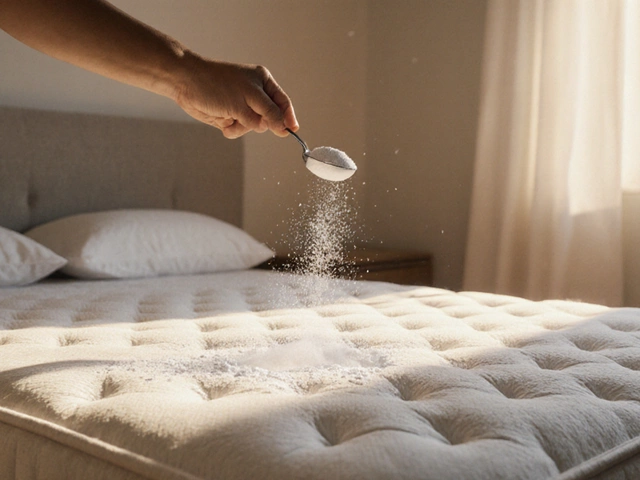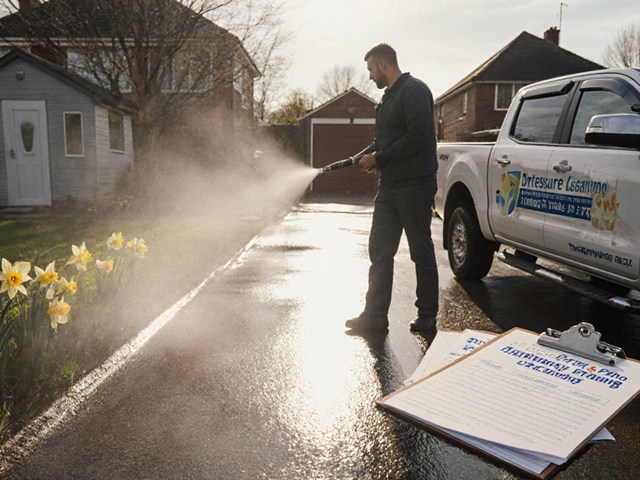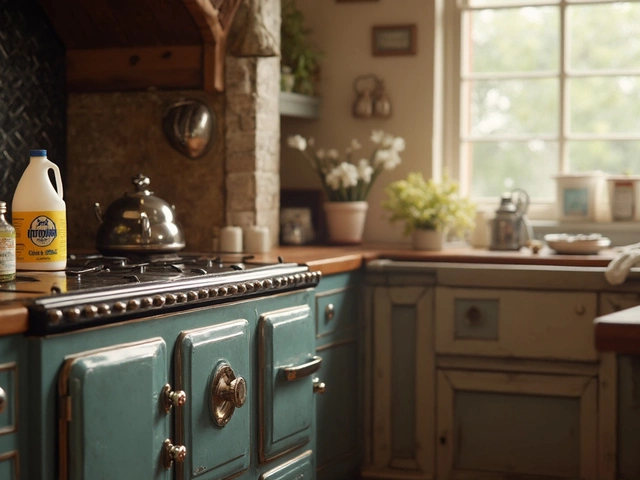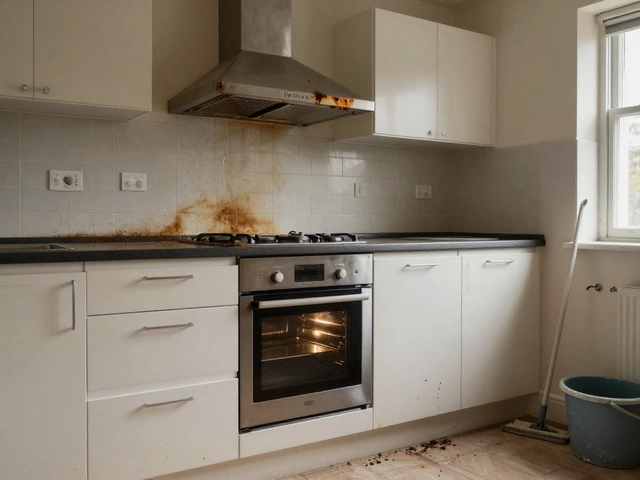Ever glanced at your oven and thought it could double as a modern art piece with all those splatters and stains? You're not alone. But before you reach for those harsh chemicals, let's talk about a gentler, yet effective method using products you probably already have in your kitchen: Dawn dish soap, white vinegar, and good ol' baking soda.
The beauty of this trio lies in its simplicity. You might be wondering: why use Dawn, vinegar, and baking soda? Well, these ingredients work wonders together, cutting through grease, neutralizing odors, and lifting baked-on grime without leaving toxic residues that can linger and affect food flavor.
So, what's the magic ratio? Typically, you'll want to mix 1 part Dawn to 2 parts vinegar, then add enough baking soda to form a paste. This combination is strong enough to tackle even the most stubborn oven spots. It's not just about getting the job done; it's about doing it without compromising your health or the environment.
- Why Use Dawn, Vinegar, and Baking Soda?
- The Ideal Cleaning Ratio
- Step-by-Step Cleaning Guide
- Do's and Don'ts
- Alternative Uses for the Mixture
- Frequently Asked Questions
Why Use Dawn, Vinegar, and Baking Soda?
Cleaning the oven can be a real hassle, right? That's where our trusty trio—Dawn dish soap, vinegar, and baking soda—comes to the rescue. Instead of overpowering chemicals, these guys let you tackle grime with a bit more science and a lot less headache.
Power of Each Ingredient
Dawn dish soap isn't just a dishwashing wonder. It's seriously good at cutting through grease thanks to its ability to break down stubborn fat molecules. Remember all those commercials about saving wildlife from oil spills? Yeah, that's the kind of power we're harnessing here, right in your own kitchen.
Next, we've got vinegar. This isn't just for salads. It's an acid, and that gives it the power to soften tough, baked-on messes in your oven. Plus, it's a natural deodorizer, so your kitchen won't smell like last week's lasagna forever.
And let's not forget baking soda. This is the scrubber of the bunch, offering a gentle, yet effective abrasive quality. It's like inviting a tiny army with sponges into your oven, scrubbing away the dirt without scratching surfaces.
Why Mix Them?
Individually, these are all-stars, but together they're a dream team for oven cleaning. The vinegar and baking soda react to form a fizzy cleaning action. This is not just cool to watch, but it helps lift away dirt and grime effortlessly. The addition of Dawn infuses this mix with extra grease-cutting power, making the job even easier.
Safe and Eco-Friendly
While we're making ovens sparkle, we're also being good to Mother Earth. This method avoids harsh chemicals that can require hazmat suits to handle. Plus, it's safe for your family and pets, which matters in a home setting.
What the Numbers Say
Thinking about statistics might not be your usual idea of fun, but here's a tidbit: tests have shown that mixing baking soda with an acid like vinegar can increase cleaning efficiency by roughly 50%. That's time saved and headaches reduced.
The Ideal Cleaning Ratio
Alright, let's get into the nitty-gritty of getting your oven spotless with our trusty trio: Dawn dish soap, vinegar, and baking soda. Mixing these ingredients in the right proportion is key to a successful, hassle-free cleaning experience.
Basic Ratio Breakdown
The go-to ratio is super simple: aim for 1 part Dawn to 2 parts vinegar, and then sprinkle in enough baking soda to create a thick paste. Why this mix? Well, Dawn is excellent for cutting grease, vinegar acts as a natural disinfectant, and baking soda brings the abrasive action to tackle tough grime.
- Dawn Dish Soap: Use a tablespoon as your measure for each part. It's gentle on surfaces but tough on grease.
- Vinegar: Two tablespoons double up for some extra cleaning power and deodorizing.
- Baking Soda: Add gradually while stirring until you hit that paste-like consistency. It should feel like damp sand—enough to hang together but not drippy.
Mixing Tips
Combine the Dawn and vinegar first. You might see some fizz when you add baking soda. That’s just chemistry at work. Don’t be startled!
If you find the paste too thick, add a few drops of vinegar to loosen it up. Conversely, if it’s too runny, just sprinkle a little more baking soda.
Keeping It Safe
Before you apply the mixture, do a quick spot test on a small, hidden area of your oven. Although these ingredients are generally safe, you just want to be sure.
And there you have it, the golden ratio that transforms oven cleaning from a dreaded task into a simple, effective routine. Once you try this, you'll have a new favorite method for keeping your kitchen appliance sparkling clean!
Step-by-Step Cleaning Guide
Cleaning your oven doesn't have to feel like climbing a mountain. With the right oven cleaning approach, you can make short work of even the messiest situations. Here's how you can use Dawn dish soap, vinegar, and baking soda to get your oven looking brand spanking new.
Gather Your Materials
Before you jump in, make sure you've got all the supplies. You'll need:
- 1/4 cup of Dawn dish soap
- 1/2 cup of white vinegar
- Baking soda (enough to make a paste)
- A spray bottle
- A cleaning cloth or sponge
- A scrubbing pad for stubborn spots
Prepare the Oven
First, take out the oven racks. You can clean these separately using the same solution.
- Mix Dawn, vinegar, and baking soda in a bowl until you get a paste-like consistency.
- Spray or spread the paste all over the interior of your oven. Pay special attention to areas with heavy buildup.
Let it Sit
Here's where a little patience goes a long way. Allow the mixture to sit for at least 30 minutes. This gives the cleaning power of the ingredients time to work its magic, breaking down grease and grime.
Scrub Away
Once time's up, grab your scrubbing pad and get to work. The paste should make it easier to lift away those stubborn, baked-on spots.
Wipe Clean
- After scrubbing, take your cloth or sponge and wipe down the oven with warm water.
- Keep rinsing the cloth and wipe until all residue is gone.
Final Touches
Don't forget to clean your oven racks with the same solution before placing them back in the oven. And voila—your oven should be looking fresh as a daisy!
Bonus Tip: For a deeper clean, let the mixture sit overnight. In the morning, the grime should practically fall off.
This method is not only effective, but it's also eco-friendly and safe for your home. No need for harsh chemicals when you've got the power of Dawn, vinegar, and baking soda on your side!
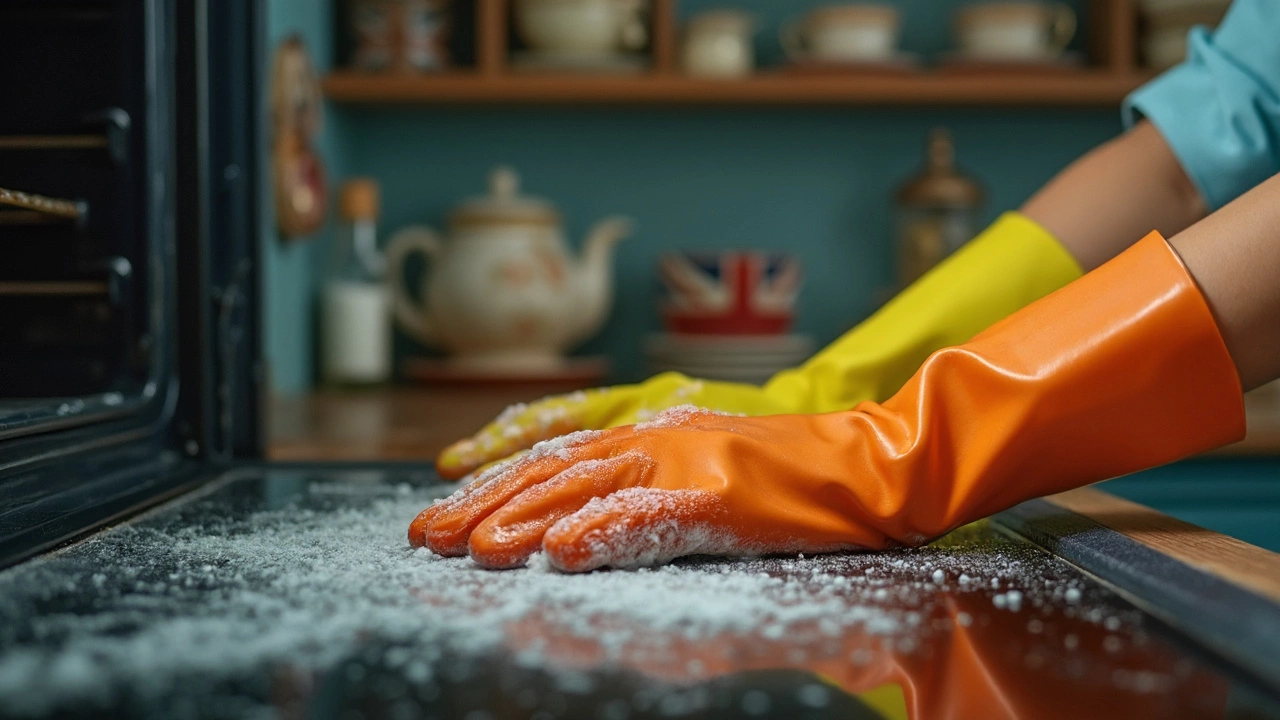
Do's and Don'ts
Getting the perfect shine in your oven with our oven cleaning solution sounds great, but there are a few things to keep in mind to ensure it goes smoothly.
Do's
- Do test a small area first: Especially if you've got fancy oven finishes. Make sure it doesn't react weirdly.
- Do wear gloves: Keeping your hands protected from the mixture prevents skin irritation.
- Do ventilate the area: Working in a well-ventilated space will help, as the vinegar can smell strong when heated.
- Do let it sit: After applying the paste, let it sit for at least 20–30 minutes to let the baking soda and vinegar do their thing.
- Do use a non-abrasive sponge: For scrubbing, use something gentle so you don’t scratch the oven’s surface.
Don'ts
- Don't mix up quantities: Keeping the right ratio of Dawn and vinegar to baking soda is key. Too much of any component can lead to poor cleaning results.
- Don't skip cleaning your oven regularly: Regular maintenance prevents the build-up of grime and makes each cleaning session easier.
- Don't forget to rinse well: Make sure you rinse thoroughly with warm water afterwards to remove any residue from the cleaning mixture.
- Don't mix with other cleaners: Combining this natural mix with chemical cleaners can produce unwanted reactions or fumes.
- Don't rush: Take your time with each step to ensure the best results without damaging your oven.
Useful Info
To put things in perspective, here's a breakdown of cleaning efficiency and household safety:
| Method | Effectiveness | Cost |
|---|---|---|
| Dawn, vinegar, and baking soda mix | High | Low |
| Commercial Oven Cleaner | Very High | Higher |
| Plain Water | Low | Minimal |
Keeping these do's and don'ts in mind will not only get your oven spotless but also safe to use without lingering odors. Nothing beats the satisfaction of a job well done, especially when it's friendly on the wallet and the earth!
Alternative Uses for the Mixture
Let's be honest, finding new ways to use what we already have makes life a tad easier—and who doesn't love a good life hack? This magical baking soda, vinegar, and Dawn dish soap combo isn't just for your oven. It turns out, this versatile mix can tackle a range of other household cleaning challenges.
Cleaning Stovetops
No one likes scrubbing those grease-splattered stovetops. Here, the same mixture comes to the rescue. Just apply it on greasy spots and leave it for about 15 minutes before wiping it clean with a damp cloth. It makes a sometimes daunting task quick and painless.
Unclogging Drains
Yep, you read that right. If you've got a sluggish drain, pour the vinegar and Dawn down first, let it sit for a few minutes, then add the baking soda. It bubbles up and starts breaking down the gunk. Rinse with hot water, and you'll likely notice a significant improvement.
Refreshing Laundry
Your clothes looking a little dull? Add a bit of this mixture (just a teaspoon of Dawn and baking soda with your usual detergent) to brighten whites and remove stains without wearing out the fabric.
Carpet Cleaner
Spilled something on the carpet? Treat the stain with a small amount of the mixture. Scrub gently, then rinse it out. The bubbling action from the baking soda and vinegar helps lift the stain, while Dawn cuts through any greasy residues.
Grout Cleaner
The grout in your tiles can go from clean to grimy pretty quickly. Use this paste to scrub between the tiles, letting the strength of baking soda and vinegar help dissolve dirt, while Dawn acts as a mild, grease-cutting soap.
So, there you have it, a simple yet effective solution that extends far beyond oven cleaning. Give it a try, and you might find that this mixture becomes your go-to for all sorts of cleaning pickle!
Frequently Asked Questions
How often should I clean my oven using the baking soda, vinegar, and Dawn mix?
It's a good idea to give your oven a scrub every 3-6 months, or whenever you notice buildup. Regular cleaning not only makes subsequent cleans easier but also keeps your kitchen smelling fresh and your meals tasting just right.
Is this mixture safe for all types of ovens?
This cleaning combination works well on most ovens, including electric, gas, and convection types. However, always check your oven's manual for specific cleaning recommendations and spot test in an inconspicuous area to ensure no adverse reactions, especially with self-cleaning ovens.
Can I use other brands besides Dawn dish soap?
Absolutely! While Dawn is known for its grease-cutting properties, other dish soaps can work too. Just ensure they are grease-fighting for best results.
What if I don't have white vinegar? Can I use any other type?
White vinegar is best for cleaning due to its high acidity. If you're in a pinch, apple cider vinegar can be an alternative, but it might not be as effective. Avoid balsamic or red wine vinegar unless you want a sticky mess!
Will this mixture scratch the glass on my oven door?
Nope, it shouldn't. Baking soda is abrasive but gentle enough not to leave scratches, especially when used as a paste. Just ensure you wipe off gently with a soft cloth.
How do I deal with a particularly stubborn layer of grime?
If the grime doesn’t lift on the first round, reapply the paste and let it sit longer, ideally overnight. A bit of patience often does the trick! A soft scrubber can also help, but avoid anything too harsh that could damage your oven.
| Ingredient | Function |
|---|---|
| Baking Soda | Scrubber, Odor Neutralizer |
| Vinegar | Grease Cutter, Disinfectant |
| Dawn Dish Soap | Degreaser |
